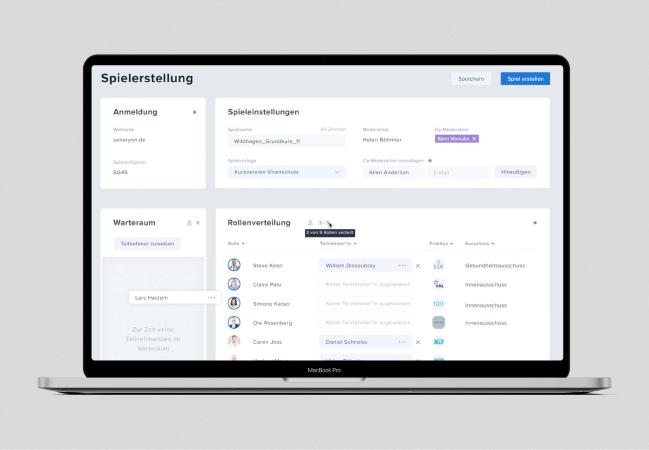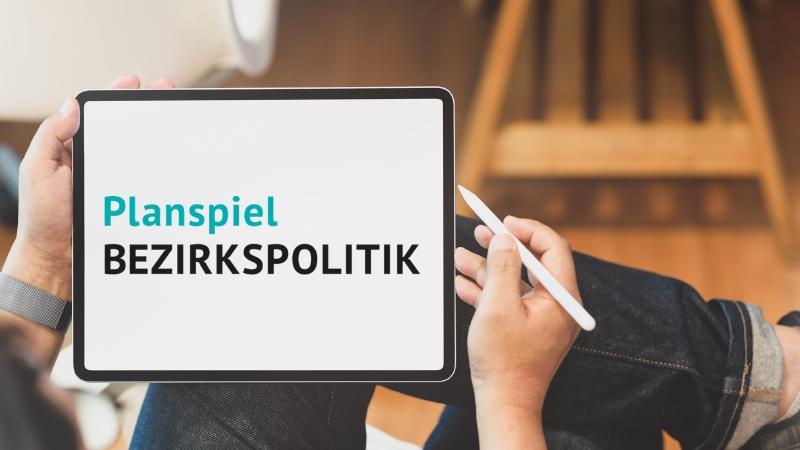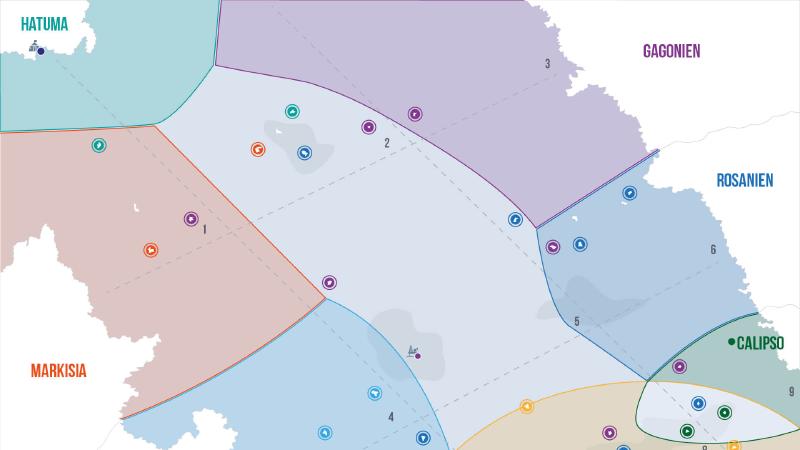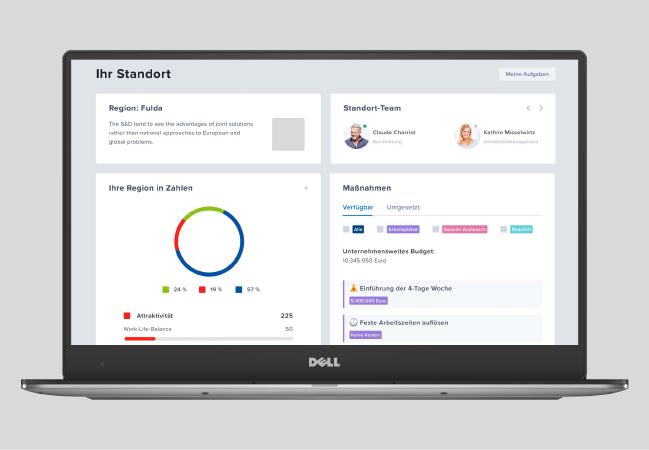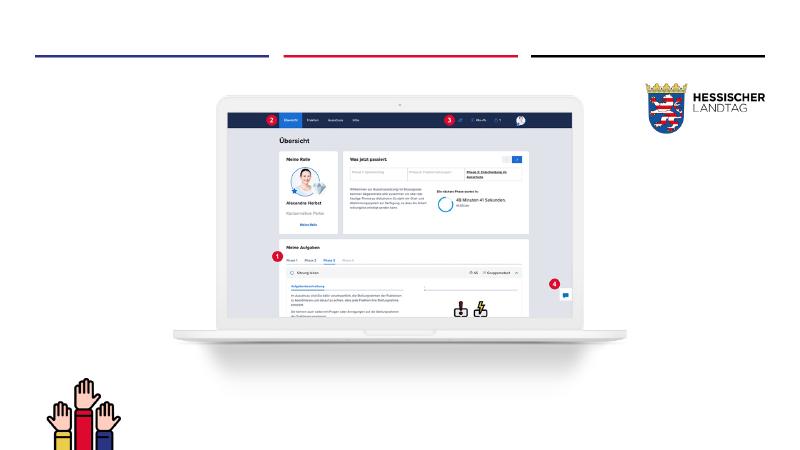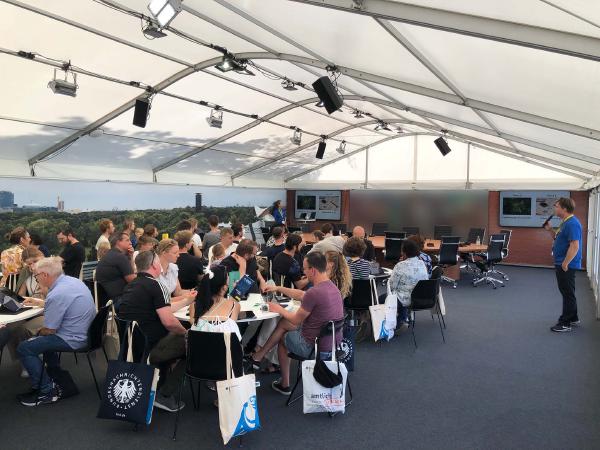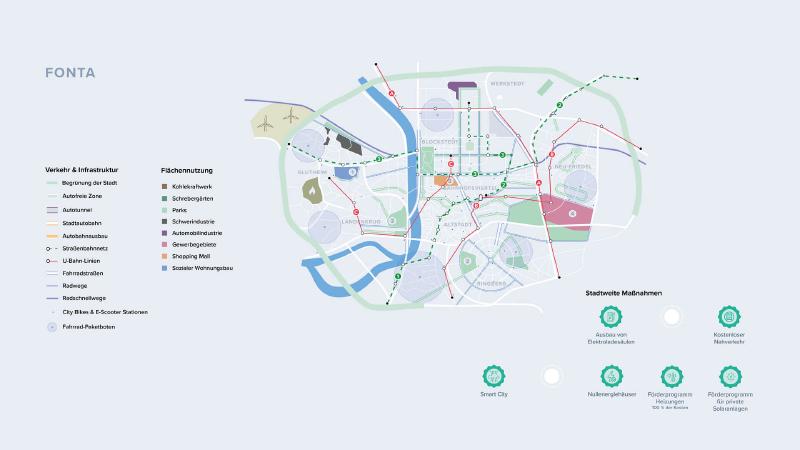Privacy Statement
As of March 2023
This privacy policy applies to our online service Senaryon, which is operated through the site www.games.senaryon.de. The software offer for online simulation games “Senaryon” is operated via the page www.games.senaryon.de and can only be used after registration and login. The privacy policy of Senaryon can be found accordingly on the page www.games.senaryon.de.
The legally binding text of the privacy policy can be found below. This is the legally non-binding short description in - hopefully - easily understandable form:
- When you visit our website, we only collect the data from you that is technically necessary for the operation of the site. This includes, for example, your IP address and the type of browser used.
- We do not use cookies (small files that are stored on your computer). Therefore, you did not have to click away a cookie banner when you came to the site.
- We use the privacy-compliant open-source tool Matomo to analyse user behaviour on our website. This helps us to make the site better and to get a rough sense of how many people see our site. We use Matomo in the maximum privacy setting (no cookies, IP addresses anonymised etc.).
- If you have any questions or comments, please contact us at datenschutz@planpolitik.de.
And now the legal text:
Name and address of the responsible person
The person responsible within the meaning of the General Data Protection Regulation and other national data protection laws of the member states as well as other data protection regulations is the:
planpolitik Simon Raiser and Björn Warkalla GbR
Friedelstr. 16
12047 Berlin
Germany
Tel.: +49-3060034643
E-Mail: info@planpolitik.de
Website: www.planpolitik.de
I. Name and address of the data protection officer
The data protection officer of the responsible person is:
Björn Warkalla
Planpolitik GbR
Friedelstr. 16
12047 Berlin
Germany
Tel.: +49-3060034643
E-mail: warkalla@planpolitik.de
Website: www.planpolitik.de
1. Extent of processing of personal data
We operate the online services of planpolitik as a tool for political education. This naturally requires the exchange of information of various kinds. We will handle your data sensitively and carefully and ensure a high degree of data security. Of course, we observe the regulations of European and German data protection law and will collect and process your personal data only to the extent described in the following privacy policy. As you will see, we collect data from our users only to a very limited extent.
Having said that, we will explain in detail below to you the purpose and extent to which we collect personal information, how we protect your information and how you can protect your privacy.
2. Legal basis for the processing of personal data
Insofar as we obtain the consent of the data subject for processing of personal data, Art. 6 para. 1 lit. a, EU General Data Protection Regulation (GDPR), serves as legal basis. The legal basis for the processing to perform our services and implement contractual activities and answering queries is Art. 6 para. 1 lit. b GDPR, the legal basis for the processing to comply with our legal obligations is Art. 6 para. 1 lit. c GDPR, and the legal basis for the processing to protect our legitimate interests Art. 6 para. 1 lit. f GDPR. In the event that the vital interests of the data subject or of another individual may require the processing of personal data Art. 6 para. 1 lit. d GDPR serves as legal basis. If the processing is necessary to safeguard the legitimate interests of our company or a third party, and the interests, fundamental rights and fundamental freedoms of the person concerned do not outweigh the former interest, Art. 6 para. 1 lit. f GDPR serves as legal basis.
3. Data erasure and storage duration
The personal data of the data subject will be deleted or blocked as soon as they are no longer required. Storage can be done beyond, if this has been provided by European or national legislation in EU law regulations, laws or regulations, to which the responsible person is subject. Blocking or deletion of the data also takes place when a storage period prescribed by the standards mentioned expires, unless there is a need for further storage of the data for conclusion of a contract or fulfilment of the contract.
III. Provision of the website and creation of log files
1. Description and scope of data processing
Each time our website is accessed, our system automatically collects data and information from the computer system of the calling computer.
The following data is collected here:
- The IP address of the user
- Date and time of access
- Websites from which the system of the user comes to our website
The data is stored in the log files of our system. A storage of this data together with other personal data of the user does not take place.
For registered Senaryon users, the following data will also be collected and stored:
- Information about the browser type and version used
- The operating system of the user
2. Legal basis for data processing
Legal basis for the temporary storage of data and log files is Art. 6 para. 1 lit. f GDPR.
3. Purpose of data processing
The temporary storage of the IP address by the system is necessary to allow delivery of the website and the software offer to the computer of the user. To do this, the user’s IP address must be kept for the duration of the session.
Storage in log files is done to ensure the functionality of the website and the software offer. In addition, the data is used to optimize the website and to ensure the security of our information technology systems. An evaluation of the data for marketing purposes does not take place in this context.
In these purposes lies our legitimate interest in data processing acc. to Art. 6 para. 1 lit. f GDPR.
4. Duration of storage
The data will be deleted as soon as it is no longer necessary for the purpose of its collection. In the case of storing the data in log files, this is the case after one month at the latest. An additional storage is possible. In this case, the IP addresses of the users are deleted or alienated, so that an assignment of the calling client is no longer possible.
5. Objection and removal possibility
The collection of data for the provision of the website and the software offer, and the storage of the data in log files is essential for the operation of the website. There is consequently no possibility of objection on the part of the user.
IV. Use of cookies
The website www.senaryon.de does not use cookies.
V. integration of third party services - Matomo analytics
We use the open-source tool “Matomo” to analyse the use of our website. The statistics obtained enable us to regularly improve our offer and make it more interesting for you as a user. We also learn about the extent of the reach of our online offer. Matomo is used within the scope of our legitimate interest as the operator of the website. The following data is collected:
- Anonymised IP address of the user
- Date and time of the query
- Title of the accessed page (Page Title)
- URL of the accessed page (Page URL)
- URL of the page that was called up before the current page (referrer URL)
- Screen resolution used
- Time in the local user’s time zone
- Files that have been clicked and downloaded (Download)
- Links to an external domain that have been clicked on (outlink)
- Page generation time (the time it takes the web server to generate the pages and then download them from the user: Page speed)
- Location of the user: country, region, city, approximate latitude and longitude (geolocation)
- Main language of the browser used (Accept-Language header)
- User agent of the browser used (User Agent Header)
We use Matomo with settings that maximise data protection and thus do not allow any conclusions to be drawn about individual persons. The settings include that no cookies are set, that we do not create so-called heatmaps or session recordings, and that we only retain the data for 90 days. In addition, this website uses Matomo with the “AnonymizeIP” extension. This means that IP addresses are processed in abbreviated form, thus excluding the possibility of a direct link to a person. The IP address transmitted by your browser via “Matomo” is not merged with other data collected by us.
V. i) integration of third party services - Adobe fonts
If the website user consents, We use Adobe Fonts to enhance our site’s visual appeal.
Adobe Fonts for websites
How does the Adobe Fonts service for websites use Cookies?
In providing the Adobe Fonts website (fonts.adobe.com), we use cookies in accordance with our Privacy Policy.
In providing the Adobe Fonts service for websites, we do not set or use cookies in order to serve our fonts.
What information is collected by the Adobe Fonts service for websites?
To provide the Adobe Fonts service for websites, Adobe may collect information about the fonts being served to your website. The information is used for the purposes of billing and compliance and may include the following:
Fonts served
-Web Project ID
-Web Project JavaScript version (string)
-Web Project type (string “configurable” or “dynamic”)
-Embed type (whether you are using the JavaScript or CSS embed code)
-Account ID (identifies the customer the Web Project is from)
-Service providing the fonts (e.g., Adobe Fonts)
-Server serving the fonts (e.g., Adobe Fonts servers or Enterprise CDN)
-Hostname of page loading the fonts
How does the Adobe Fonts service for websites use the information it collects?
Adobe uses the information collected from websites using Adobe Fonts to provision the Adobe Fonts service and diagnose delivery or download problems. This information is also used to pay and fulfil our contracts with the font foundries whose fonts are used. We share aggregate reporting with font foundries and we may confirm to a font foundry that you have a valid licence from Adobe, but we do not otherwise share your personal information with font foundries.
More information available here: https://www.adobe.com/ie/privacy/policies/adobe-fonts.html
VI. Safety
We use technical and organizational security measures to ensure that the personal data of our users are protected against loss, incorrect changes or unauthorized access by third parties. Thus, your data will be encrypted when you register, and the passwords and other data will be encrypted and stored with your own security technology. The databases themselves are secured again. In any case, only authorized persons have access to your personal data, and only to the extent that it is necessary for the purposes mentioned above.
VII. Rights of the person concerned
If personal data from you is processed, you are concerned in the sense of the GDPR, and you have the following rights to the person responsible:
You may ask the person in charge to confirm if personal data concerning you is processed by us.
If such processing is taking place, you can request information from the person responsible about the following:
- the purposes for which the personal data are processed;
- the categories of personal data that are processed;
- the recipients or categories of recipients to whom the personal data relating to you have been disclosed or are still being disclosed;
- the planned duration of the storage of your personal data or, if specific information is not available, criteria for determining the duration of storage;
- the existence of a right to rectification or erasure of personal data concerning you, a right to restriction of processing by the controller or a right to object to such processing;
- the existence of a right of appeal to a supervisory authority;
You have the right to request information about whether your personal information relates to a third country or an international organization. In this connection, you can request to be informed about the appropriate guarantees in accordance with Art. 46 GDPR in connection with the transmission.
2. Right to rectification
You have a right to rectification and/ or completion to the responsible person if the personal data you process is incorrect or incomplete. The responsible person must make the correction without delay.
3. Right to restriction of processing
You may request the restriction of the processing of your personal data under the following conditions:
- if you contest the accuracy of your personal information for a period of time that enables the controller to verify the accuracy of your personal information;
- if the processing is unlawful and you refuse to delete the personal data and instead request the restriction of the use of the personal data;
- if the controller no longer requires personal data for the purposes of processing, but you need them to assert, exercise or defend legal claims, or
- if you object to the processing in accordance with Art. 21 para. 1 GDPR and it has not yet been determined whether the legitimate reasons of the person responsible outweigh your reasons.
If the processing of personal data concerning you has been restricted, this data may only be used with your consent or for the purpose of asserting, exercising or defending legal claims or protecting the rights of another natural or legal person or for reasons of important public interest of the Union or a Member State.
If the restriction on processing has been restricted in accordance with the above conditions, the person responsible will inform you before the restriction is lifted.
4. Right to deletion
a) deletion obligations
You can ask the person responsible that the personal data concerning you will be immediately deleted, and the manager is obligated to delete that information immediately, unless one of the following reasons applies:
- Your personal data are no longer necessary for the purposes for which they were collected or otherwise processed.
- You revoke your consent to the processing acc. to Art. 6 para. 1 lit. a or Art. 9 para. 2 lit. a GDPR, and there is a lack of otherwise legal basis for the processing.
- You object to the processing acc. to Art. 21 para. 1 GDPR, and there are no prior justifiable reasons for processing, or you object to the processing acc. to Art. 21 para. 2 GDPR.
- Your personal data has been processed unlawfully.
- The deletion of personal data concerning you is required to fulfil a legal obligation under Union law or the law of the Member States to which the controller is subject.
- Your personal data were collected relating to information society services provided in accordance with Art. 8 para. 1 GDPR.
b) Information to third parties
If the responsible person has made the personal data concerning you public and is obligated to their deletion acc. to Art. 17 para. 1 GDPR, he/she takes appropriate measures, including technical means, to inform data controllers who process the personal data, taking into account the technology available and the implementation costs, that you as the data subject have required from him/her the deletion of all links to these personal data or copies or replications of personal data.
c) Exceptions
The right to erasure does not exist if the processing is necessary
- to exercise the right to freedom of expression and information;
- to fulfil a legal obligation required by the law of the Union or of the Member States to which the controller is subject, or to carry out a task of public interest or in the exercise of official authority conferred on the controller;
- for reasons of public interest in the field of public health according to Art. 9 para. 2 lit. h and i as well as Art. 9 para. 3 GDPR;
- for archival purposes of public interest, scientific or historical research purposes or for statistical purposes acc. to Art. 89 para. 1 GDPR, insofar as the law referred to in section a) is likely to render impossible or seriously affect the achievement of the objectives of this processing, or
- to assert, exercise or defend legal claims.
If you have the right of rectification, erasure or restriction of processing to the controller, he/ she is obliged to notify all recipients to whom your personal data have been disclosed of this correction or deletion of the data or restriction of processing, unless this proves to be impossible or involves a disproportionate effort.
You have a right to the person responsible to be informed about these recipients.
6. Right to data portability
You have the right to receive the personal information that you provide to the controller in a structured, common and machine-readable format. In addition, you have the right to transfer this data to another person without hindrance by the person responsible for providing the personal data, provided that
- the processing is based on a consent acc. to Art. 6 para. 1 lit. a GDPR or Art. 9 para. 2 lit. a GDPR or on a contract acc. to Art. 6 para. 1 lit. b GDPR and
- the processing is done using automated procedures.
In exercising this right, you have the right also to obtain that your personal data shall be transmitted directly from one person responsible to another person responsible, to the extent this is technically feasible. Freedoms and rights of other persons may not be affected.
The right to data portability does not apply to the processing of personal data necessary for the performance of a task in the public interest or in the exercise of official authority delegated to the controller.
7. Right to objection
You have the right at any time, for reasons that arise from your particular situation, to object against the processing of your personal data, which are collected based on Art. 6 para. 1 lit. e or f GDPR; this also applies to profiling based on these provisions.
The controller will no longer process the personal data relating to you unless he/she can demonstrate compelling legitimate grounds for processing that outweigh your interests, rights and freedoms, or the processing is for the purposes of asserting, exercising or defending legal claims.
If the personal data relating to you are processed for direct marketing purposes, you have the right to object at any time to the processing of your personal data for the purpose of such advertising; this also applies to profiling insofar as it is associated with such direct marketing.
If you object to processing for direct marketing purposes, your personal data will no longer be processed for these purposes.
Regardless of Directive 2002/58/EC, you have the option, in the context of the use of information society services, of exercising your right to opt-out through automated procedures that use technical specifications.
8. Right to revoke the Declaration of Consent
You have the right to revoke your declaration of consent according to privacy law at any time. The revocation of consent does not affect the legality of the processing carried out on the basis of the consent until the revocation.
9. Automated decision in individual cases including profiling
You have the right not to be subject to a decision based solely on automated processing - including profiling - that will have legal effect on you or seriously affect you in a similar way. This does not apply if the decision
- is required for the conclusion or performance of a contract between you and the controller,
- is permissible on the basis of Union or Member State legislation to which the controller is subject, and that legislation contains adequate measures to safeguard your rights and freedoms and your legitimate interests, or
- with your express consent.
However, these decisions may not apply to specific categories of personal data under Art. 9 para. 1 GDPR, unless Art. 9 para. 2 lit. a or g GDPR applies and reasonable measures have been taken to protect the rights and freedoms as well as your legitimate interests.
With regard to the cases referred to in (1) and (3), the person responsible shall take appropriate measures to uphold the rights and freedoms and your legitimate interests, including at least the right to obtain the intervention of a person by the controller, to express his/ her own position and to challenge the decision.
10. Right to complain to a supervisory authority
Notwithstanding an otherwise administrative or legal proceeding, you have the right to appeal to an oversight authority, in particular in the Member State of your residence, your place of work or the location of the alleged violation to if you are of the opinion that the processing of personal data concerning you violates the GDPR.
The supervisory authority to which the complaint has been submitted shall inform the complainant of the status and results of the complaint, including the possibility of a judicial remedy acc. to Art. 78 GDPR.
